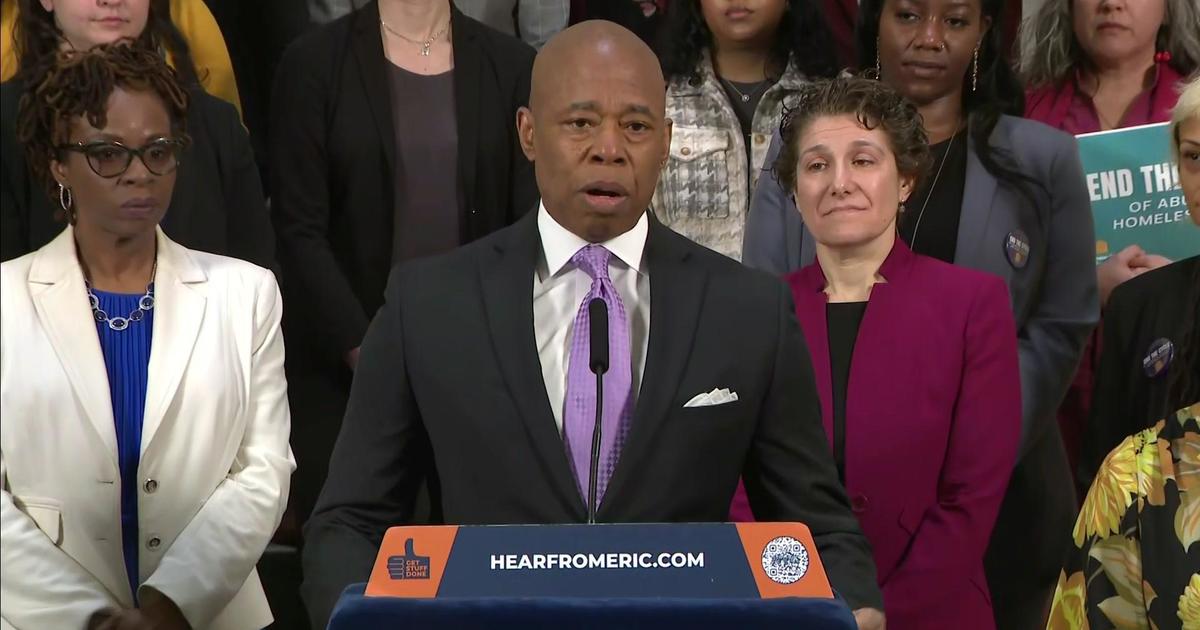Trump OKs Tariffs On China; Stocks Fall Over Fears Of Trade War
WASHINGTON, DC (CBSNewYork/CBS News) -- President Donald Trump signed a memorandum Thursday directing the U.S. Trade Representative to impose an estimated $50 billion in tariffs on China, which will go into effect in at least 45 days.
"We have spoken to China and we are in the midst of a very large negotiation," Trump said. "We will see where it takes us. In the meantime, we are sending a Section 301 action."
Trump said he has asked Chinese officials to immediately reduce the U.S. trade deficit with China by $100 billion, making good on promises he made on the campaign trail and reiterated in recent weeks.
"When they charge 25 percent for a car to go in, and we charge 2 percent for their car to come into the United States, that's not good," Trump said.
The announcement sent the stock market plunging over fears of a possible trade war, CBS2's Dick Brennan reported.
The Dow Jones Industrial Average dropped more than 724 points, the S&P lost 68 points, and the Nasdaq dropped 178 points.
The tariffs will target what White House trade adviser Peter Navarro described on a conference call with reporters as China's market distorting and "discriminatory practices" to steal American intellectual property and unfair technology transfers.
The Chinese government warned it will "certainly take all necessary measures to resolutely defend" itself.
If China retaliates, major U.S. exports, like soybeans, and U.S. companies, like Boeing, Apple and Ford, could be hit.
"These tariffs pose a serious risk to our economy, could trigger a trade war and may damage our relations with key allies,' Rep. Sam Johnson, R-Texas, said.
Earlier this month, the president said the United States will impose a 25 percent tariff on steel imports and 10 percent tariff on aluminum to shore up the struggling industries. But he did not provide any details on the controversial plan – for example, whether certain countries might be exempt.
With China, Deputy director of the National Economic Council Everett Eissenstat said that USTR will publish a "long list" of proposed Chinese imports within 15 days. A notice and comment period will then open up for stakeholder input.
The Treasury department has until 60 days from memorandum's signing to submit recommendations for a final list of tariffs.
The tariffs, senior officials say, will be designed to offset "the gains that the Chinese have received through unfair trade practices."
The memorandum will also direct the Treasury department to make recommendations on restrictions to Chinese investments to the President within 60 days. While the tariffs will be imposed unilaterally, Eissenstat also said that Trump will direct the World Trade organization to "address China's discriminatory licensing practices."
White House officials did not specify which products will be targeted by the tariffs but the stock market opened lower on on Thursday morning with investors worried that Trump's actions will trigger retaliatory actions from China.
The Wall Street Journal reported on Wednesday that China is already preparing measures to hit back at the U.S. by targeting U.S. agricultural exports like soybeans and hogs.
Navarro claimed the administration has tried "very, very hard to work with the Chinese.
"Trump did his due diligence in inviting the Chinese to the Mar-a-Lago process and engaged and we went all the way to August trying to resolve these issues through dialogues," Navarro told reporters.
On Monday, Wal-Mart, Target, Macy's, Best Buy and other major retailers released a letter urging the President not to impose tariffs on China arguing that they could "punish American working families with higher prices on household basics like clothing, shoes, electronics, and home goods.
The U.S. Chamber of commerce also pushed back back in a statement over the weekend to say that tariffs are "damaging taxes on American consumers."
A White House official said that while stakeholder input is "important and valued," dialogue with the Chinese over the past 15 years has been fruitless.
"China has been well aware of these concerns for many many years so the president has decided that now is the time to take decisive actions," the official said.



